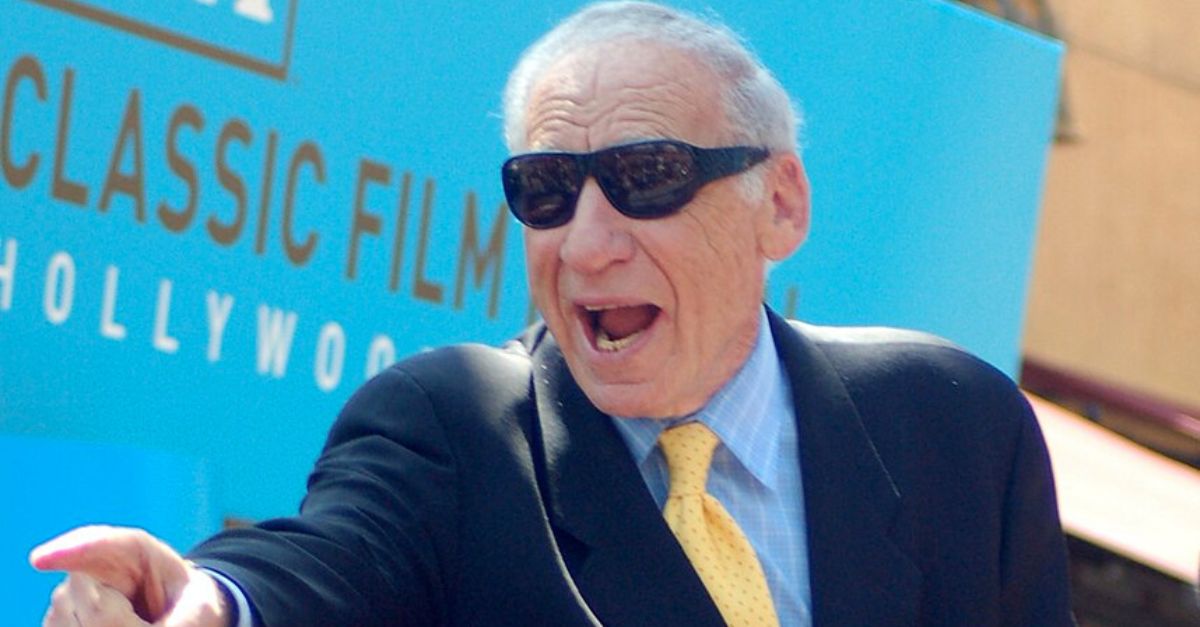The Magic Only Unfolds Once
Some films are hailed as masterpieces but remain one-time experiences for most viewers, celebrated for their artistic brilliance yet marked by their intense emotional weight. This exploration is a look into cinema's paradox of genius that resists rewatchability.

The Fault In Our Stars
Amid oxygen tanks and prosthetic limbs, Hazel Grace Lancaster and Augustus Waters find love while confronting terminal illness. Their shared obsession with An Imperial Affliction leads them to Amsterdam’s Anne Frank House, where tragedy and transcendence intertwine.
 20th Century Fox, The Fault in Our Stars (2014)
20th Century Fox, The Fault in Our Stars (2014)
Bone Tomahawk
What begins as a familiar Western rescue transforms into something terrifyingly primal. Kurt Russell’s Sheriff Hunt ventures into desolation, unaware that his search party will face cannibalistic cave dwellers. S Craig Zahler’s 2015 debut fuses horror and frontier grit so disturbingly that admiration often comes without desire to revisit.
 RLJ Entertainment, Bone Tomahawk (2015)
RLJ Entertainment, Bone Tomahawk (2015)
Marriage Story
Noah Baumbach’s Marriage Story dissects divorce with surgical precision, following Charlie and Nicole as love mutates into legal warfare. Adam Driver and Scarlett Johansson deliver hauntingly raw performances, while Laura Dern’s Oscar-winning performance of a ruthless attorney seals the heartbreak. It’s brilliant, devastating, and nearly impossible to endure twice.
 Netflix, Marriage Story (2019)
Netflix, Marriage Story (2019)
The Last King Of Scotland
In this chilling 2006 drama, Idi Amin’s delusion of grandeur unravels through the terrified eyes of a fictional Scottish doctor. Forest Whitaker’s Oscar-winning portrayal of Uganda’s volatile dictator exposes charisma weaponized into horror—so magnetic, grotesque, and psychologically taxing that one viewing feels more than enough.
 Fox Searchlight Pictures, The Last King of Scotland (2006)
Fox Searchlight Pictures, The Last King of Scotland (2006)
A Star Is Born
Bradley Cooper’s directorial debut bathes fame’s seduction and addiction’s decay in haunting authenticity. Alongside Lady Gaga’s Oscar-winning “Shallow,” the story of rising stardom and fading genius achieves painful intimacy. Its brilliance lies in emotional rawness, but like heartbreak itself, it’s too gutting to relive after the first descent.
 Warner Bros. Pictures, A Star Is Born (2018)
Warner Bros. Pictures, A Star Is Born (2018)
Midsommar
Ari Aster drenches terror in sunlight, crafting Midsommar as both grief ritual and breakup dissection. Florence Pugh anchors the madness with aching realism as a Swedish commune’s rituals turn gory. The film’s brilliance is undeniable, and its relentless dread ensures most viewers never wish to enter that daylight again.
Django Unchained
Set against slavery’s savagery, Quentin Tarantino’s 2012 saga fuses revenge and liberation. Jamie Foxx takes on Django’s righteous fury, joined by Christoph Waltz’s Oscar-winning Dr King Schultz. Tarantino’s blend of sharp dialogue, violence, and uneasy humor commands admiration. Yet its brutality makes “rewatchable” feel like the wrong kind of compliment.
 Columbia Pictures, Django Unchained (2012)
Columbia Pictures, Django Unchained (2012)
Dear Zachary: A Letter To A Son About His Father
This 2008 documentary begins as a heartfelt tribute to a character’s murdered friend, Andrew Bagby, and evolves into an unbearable chronicle of compounded tragedy. When Bagby’s son Zachary also dies, grief becomes infinite. It’s astonishingly personal filmmaking, so emotionally pulverizing that few ever summon strength for another viewing.
 Oscilloscope Laboratories, Dear Zachary: A Letter to a Son About His Father (2008)
Oscilloscope Laboratories, Dear Zachary: A Letter to a Son About His Father (2008)
The Hate U Give
Amandla Stenberg’s Starr Carter balances two worlds until witnessing a white officer fatally shoot her unarmed friend Khalil. Adapted from Angie Thomas’s novel, the 2018 drama channels Tupac’s “THUG LIFE” creed into blistering social commentary to make an unforgettable film whose emotional weight discourages casual or repeated viewing.
 20th Century Fox, The Hate U Give (2018)
20th Century Fox, The Hate U Give (2018)
Fight Club
This 1999 adaptation of Chuck Palahniuk’s novel detonates modern identity. Edward Norton’s hollow narrator and Brad Pitt’s anarchic Tyler Durden merge into a single fractured psyche, exposing masculinity’s self-destruction. It’s a cultural milestone—brilliantly constructed yet so bleakly unsettling that its shock lingers long after admiration fades.
 20th Century Fox, Fight Club (1999)
20th Century Fox, Fight Club (1999)
Hereditary
Critics hailed it as visionary, but its suffocating despair makes even the bravest viewer hesitate before facing that darkness twice. Here’s why: Hereditary traps grief inside supernatural horror. Toni Collette’s unhinged performance anchors a family unraveling beneath ancestral evil, while the director’s meticulous dread never releases its grip.
My Sister’s Keeper
In Nick Cassavetes’s 2009 adaptation of Jodi Picoult’s novel, a daughter sues for medical emancipation from parents who conceived her to save her sister’s life. Cameron Diaz’s fierce portrayal of maternal devotion clashes with moral agony. The film’s emotional cruelty cuts so deeply it rarely invites another viewing.
 New Line Cinema, My Sister’s Keeper (2009)
New Line Cinema, My Sister’s Keeper (2009)
Son Of Saul
As a 2015 Holocaust drama, Son Of Saul confines its gaze to one man’s horror. Through tight 40mm shots, prisoner Saul Auslander searches Auschwitz’s death pits for spiritual redemption. Its unrelenting proximity to suffering earned an Oscar for Best Foreign Language Film—and ensures even admirers seldom endure it again.
Winter’s Tale
Colin Farrell’s Peter Lake outruns Russell Crowe’s ruthless Pearly Soames through a magical New York that spans a century. Akiva Goldsman’s 2014 adaptation of Mark Helprin’s novel fuses romance and mysticism into a bewildering fantasy so earnest and strange that curiosity outweighs the urge to revisit.
 Warner Bros. Pictures, Winter’s Tale (2014)
Warner Bros. Pictures, Winter’s Tale (2014)
The Impossible
Before the waves hit, a family vacations beneath a perfect Thai sky—then chaos obliterates paradise. JA Bayona’s The Impossible (2012) turns the 2004 tsunami into sensory torment and triumph. Naomi Watts’s Oscar-nominated performance bleeds authenticity, leaving audiences breathless, grateful, and unwilling to endure that heartbreak again.
 Summit Entertainment, The Impossible (2012)
Summit Entertainment, The Impossible (2012)
Precious
No film dares its audience to stare longer than Precious (2009). Lee Daniels adapts Sapphire’s Push into a portrait of pain, anchored by Gabourey Sidibe’s quiet strength and Mo’Nique’s terrifying Oscar-winning rage. Backed by Oprah Winfrey and Tyler Perry, it demands admiration—then mercy from ever watching again.
Se7en
“What's in the box?” still echoes through film history. David Fincher’s Se7en traps Brad Pitt and Morgan Freeman in a labyrinth of sin and decay. Its flawless direction and brutal logic make it unforgettable—and nearly unwatchable twice—given the suffocating dread packed into every revelation.
Stepmom
Few dramas face mortality with such raw tenderness. In Stepmom (1998), Susan Sarandon’s dying mother and Julia Roberts’s reluctant successor learn love’s hardest discipline: letting go. What begins as rivalry turns into a spiritual partnership, culminating in a tearful grace so complete that repeating it feels emotionally reckless.
 Columbia Pictures, Stepmom (1998)
Columbia Pictures, Stepmom (1998)
Taegukgi: The Brotherhood Of War
Gunfire, mud, and brotherhood define Kang Je-gyu’s Taegukgi (2004), a Korean War epic where patriotism collides with familial loyalty. Jang and Won Bin’s performances carve tragedy into memory. Its visceral realism and national symbolism earned acclaim, but few can bear a second descent into such anguish.
 Showbox, Taegukgi: The Brotherhood of War (2004)
Showbox, Taegukgi: The Brotherhood of War (2004)
Requiem For A Dream
Addiction rarely looked this hypnotic—or this cruel. Darren Aronofsky’s Requiem for a Dream (2000) blends hip-hop montages, split screens, and Ellen Burstyn’s devastating unraveling into a symphony of despair. Critics call it visionary; survivors of one viewing call it enough to last a lifetime.
 Artisan Entertainment, Requiem for a Dream (2000)
Artisan Entertainment, Requiem for a Dream (2000)
A Dog’s Purpose
Reincarnation takes the shape of wagging tails and soulful eyes in A Dog’s Purpose (2017). Through Josh Gad’s gentle narration, one canine spirit searches across lifetimes for meaning. Adapted from W Bruce Cameron’s novel, it earned $200 million, proof that even sentimentality can feel spiritually profound.
 Universal Pictures, A Dog’s Purpose (2017)
Universal Pictures, A Dog’s Purpose (2017)
Silent Running
Among the stars drifts Earth’s last garden. Douglas Trumbull’s Silent Running (1972) follows Bruce Dern’s botanist protecting humanity’s final plants alongside the endearing drones Huey, Dewey, and Louie. Crafted by the effects genius behind 2001: A Space Odyssey, it’s haunting and far too lonely for repeat voyages.
 Universal Pictures, Silent Running (1972)
Universal Pictures, Silent Running (1972)
Titanic
Every rewatch feels like reopening a wound. James Cameron’s Titanic (1997) marries spectacle and sorrow, changing the 1912 maritime tragedy into cinematic history. Leonardo DiCaprio and Kate Winslet’s doomed romance helped it become the world’s highest-grossing film—until Avatar. Its emotional enormity drains more tears than viewers can spare twice.
 20th Century Fox, Titanic (1997)
20th Century Fox, Titanic (1997)
Excision
Arthouse elegance collides with surgical nightmare in Excision (2012). AnnaLynne McCord’s deranged Pauline fantasizes about perfection while John Waters and Malcolm McDowell lend twisted gravitas. Visually striking but disturbingly intimate, the film’s psychological descent is so intense it lingers like a scar.
 Anchor Bay Films, Excision (2012)
Anchor Bay Films, Excision (2012)
Lion
Long before GPS became ordinary, a lost child used it to find home. Lion (2016) tells Saroo Brierley’s true story through Dev Patel’s soulful performance and Nicole Kidman’s Oscar-nominated grace. With Google Earth bridging the 25-year gap, the film’s beauty and heartbreak leave audiences emotionally spent.
 The Weinstein Company, Lion (2016)
The Weinstein Company, Lion (2016)










